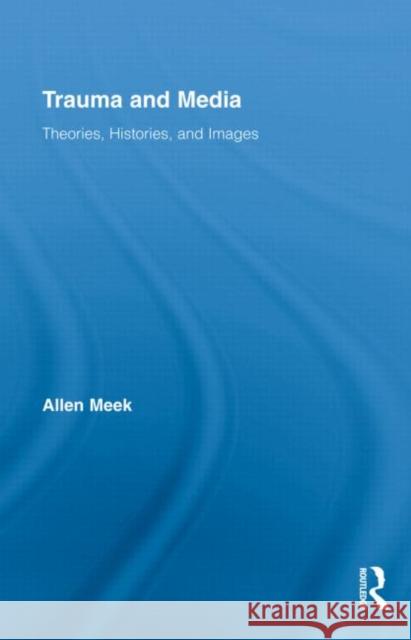Trauma and Media: Theories, Histories, and Images » książka
Trauma and Media: Theories, Histories, and Images
ISBN-13: 9780415801232 / Angielski / Twarda / 2009 / 224 str.
Trauma and Media: Theories, Histories, and Images
ISBN-13: 9780415801232 / Angielski / Twarda / 2009 / 224 str.
(netto: 718,58 VAT: 5%)
Najniższa cena z 30 dni: 654,86
ok. 16-18 dni roboczych.
Darmowa dostawa!
This book provides the first comprehensive account of trauma as a critical concept in the study of modern visual media, from Freud to the present day, explaining how contemporary trauma studies emerged from research on Holocaust representation in which the audiovisual testimony of survivors was posed as an authentic alternative to popular television and film dramatizations. It argues that the media coverage of 9/11 and the subsequent 'war on terror, ' however, has revealed how the formation of communities of witness and commemoration around 'traumatic events' can perpetuate violence and inequality. The book explains how Benjamin, Adorno and Barthes, drawing from psychoanalysis, analyzed the roles of fantasy, ideology and collective identification in mass media, and began to understand trauma as an authentic experience of modernity. It proposes that the insights of these earlier theorists, along with more recent arguments by Derrida, Agamben and Zizek, continue to provide important perspectives on today's politics of mediated shock and terror.
In this study, Meek considers how the concept of trauma has informed critical theories of visual media from the 1930s to the present. Looking at how the psychoanalytic theory of trauma was adapted by the cultural critics Walter Benjamin,Theodor Adorno, Roland Barthes, Jacques Derrida, and Slavoj Zizek, Meek reconsiders a history of trauma theory as cultural critique that will be of interest to academics and students of visual culture, critical theory and film and media studies.











